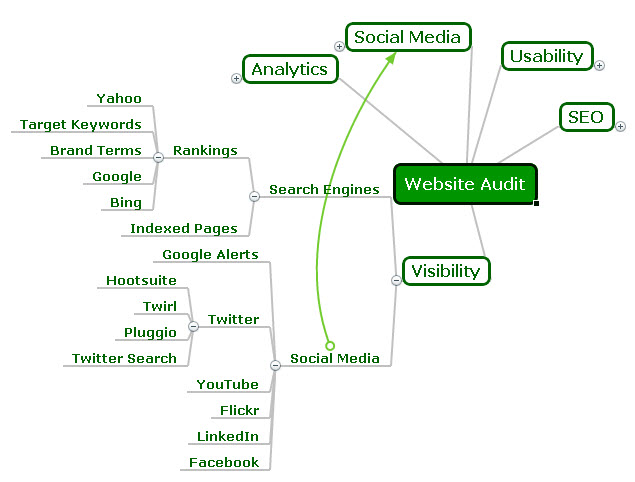Website audits provide detailed insight and reveal potential loopholes in a website, and proposes effective solutions to fix the problems. Even though there are many Search Engine Optimization (SEO) techniques making rounds on the internet, webmasters, particularly those who retail online, must conduct a website audit to ensure maximum effectiveness of the site.

This process is necessary, yet is among the most neglected marketing processes among most. For instance, by conducting a website audit, people will find issues related to the website’s architecture, usability, domain names, server configuration, and a plethora other facets. They can then rectify these defects to conform to various bot algorithms stipulated by major search engines, rank higher, and thus, benefit from free, targeted traffic. Principally, a good website audit strengthens relevancy of a website to its niche and maximizes its ability to attract volumes of user traffic.
Benefits of Website Auditing
People who audit their websites by themselves or hire professional SEO companies enjoy a myriad of benefits which include the following:
Customer Satisfaction
After professionally auditing a website, the web owner will have developed an effective websites that will resonate well with most if not all of their customers. For instance, they will easily access the website via search queries and get material that they are looking for easily. Therefore, by applying the recommendations of a website audit, people will create efficient, technologically adept websites that positively influence the profitability.
Security Threats
Websites, particularly those that have money trading platforms or outsource their custom codes, have many hack attempts and other security challenges. By doing a website audit, they can find bad network settings and or website components that affects its security.
Legal Considerations
Like their brick and mortar counterparts, people who run online businesses must conform to various legal considerations. Those who fail to abide by these rules attract many fines that may affect the financial situation. Primarily, by doing a website audit, webmasters will know whether they have copyright and or advertising constraints and whether they are violating any marketing or international laws.
How to Conduct a Website Audit
With the rapidly changing SEO rules, people should audit their websites at regular intervals to make sure that they are operating optimally. While undertaking the process, they should pay attention to the following facets:
Content Optimization
This is by far the most important facet of website auditing. Principally, websites should have unique and quality content that has the correct keyword density, internal links, and domain names. Moreover, they should keep their home page content succinct and well-organized. As a result, bots will easily figure out relevance of their content to their provided keywords and thus, index their websites appropriately. However, people should avoid keyword stuffing at all costs. Although this black hat SEO strategy worked well in the past, updated bot algorithms are strict on their 2 percent threshold. People must also explore the power of link building. They should create inbound links that reference other blog and web pages. Webmasters must also have keyword rich anchor texts that blend naturally with the content.
Microdata
Microdata, though a less-known terminology, is a powerful SEO facet that people should consider. They enhance an efficient communication between search engine spiders and the web content. By doing a website audit, people will know whether their definitions on sections and other page elements are search engine friendly. Those who have corrected these flaws will increase their visibility in search results and benefit from free, targeted traffic.
Meta and Title Tags
People should also make sure that they have unique Meta and Title tags that complement their content. They should be less than 160 characters long and contain the primary keyword. Those who want to include two or more phrases should use commas to separate them. By doing a website audit, webmasters will identify these and many other flaws, correct them, and boost profitability of their establishments.
Crystal Watts is a web publisher and writer for websites24seven.com and the wattspublishinggroup.com – her expertise and passion includes web technology, online business, monetization, seo and social media marketing.
A Guide To Website Auditing

